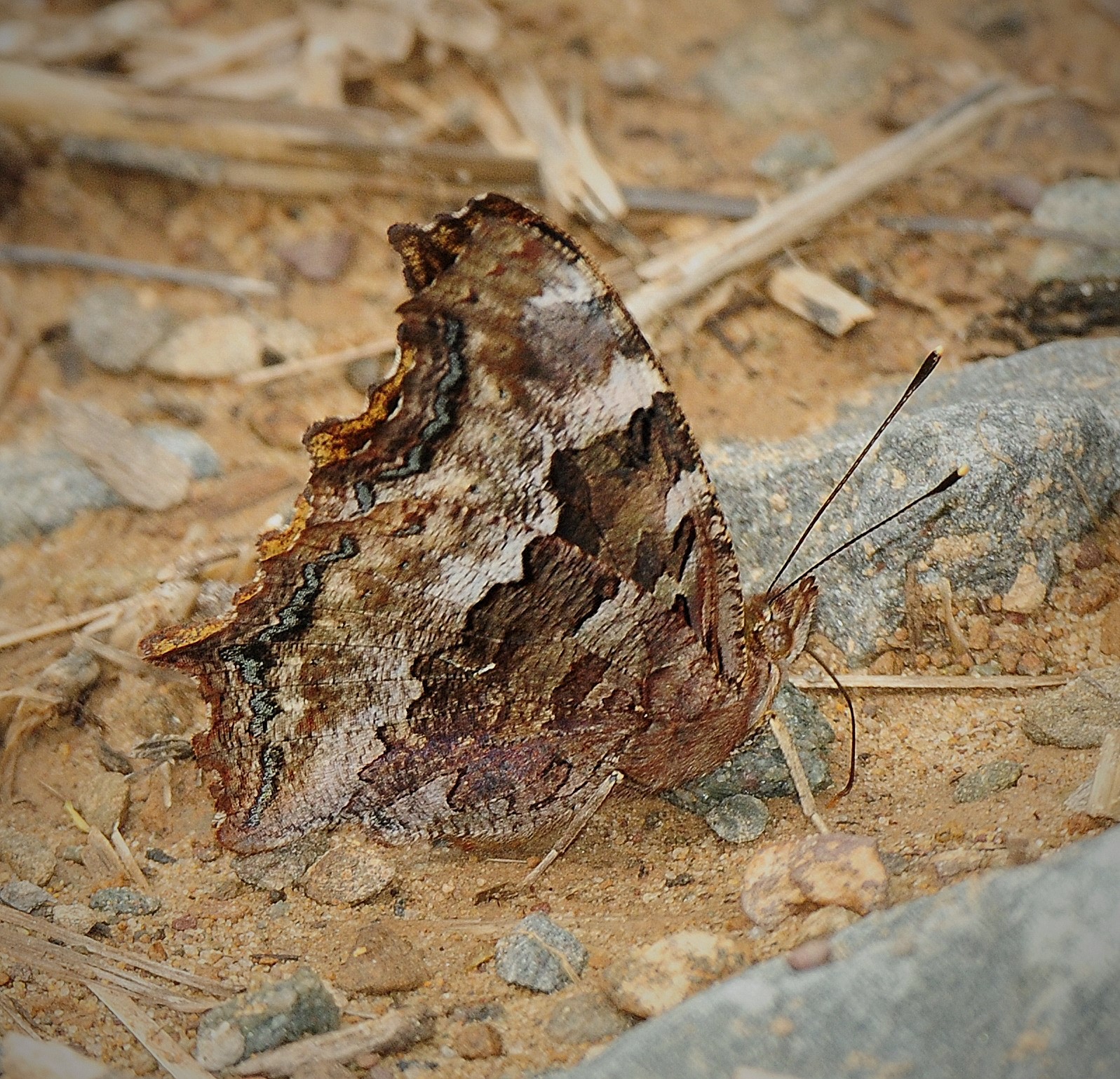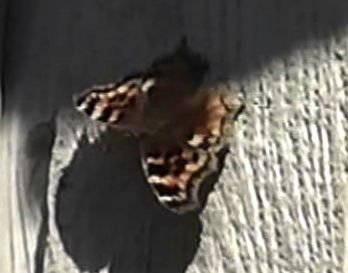| Aaron's Skipper - 47 |
| American Copper - 391 |
| American Lady - 7,249 |
| American Snout - 2,782 |
| Aphrodite Fritillary - 574 |
| Appalachian Azure - 163 |
| Appalachian Brown - 918 |
| Appalachian Tiger Swallowtail - 218 |
| Arogos Skipper - 22 |
| Baltimore Checkerspot - 64 |
| Banded Hairstreak - 570 |
| Barred Yellow - 19 |
| Berry's Skipper - 47 |
| Black Swallowtail - 3,149 |
| Brazilian Skipper - 227 |
| Broad-winged Skipper - 332 |
| Brown Elfin - 414 |
| Byssus Skipper - 264 |
| Cabbage White - 6,338 |
| Carolina Roadside-Skipper - 302 |
| Carolina Satyr - 5,339 |
| Cassius Blue - 10 |
| Ceraunus Blue - 3 |
| Checkered White - 352 |
| Clouded Skipper - 5,065 |
| Clouded Sulphur - 1,910 |
| Cloudless Sulphur - 7,997 |
| Cobweb Skipper - 108 |
| Cofaqui Giant-Skipper - 4 |
| Common Buckeye - 9,995 |
| Common Checkered-Skipper - 3,107 |
| Common Roadside-Skipper - 404 |
| Common Sootywing - 908 |
| Common Wood-Nymph - 1,839 |
| Compton Tortoiseshell - 3 |
| Confused Cloudywing - 229 |
| Coral Hairstreak - 329 |
| Creole Pearly-eye - 548 |
| Crossline Skipper - 1,814 |
| Crystal Skipper - 216 |
| Dainty Sulphur - 48 |
| Delaware Skipper - 881 |
| Diana Fritillary - 531 |
| Dion Skipper - 610 |
| Dorantes Longtail - 10 |
| Dotted Skipper - 135 |
| Dreamy Duskywing - 630 |
| Dukes' Skipper - 93 |
| Dun Skipper - 2,273 |
| Dusky Azure - 47 |
| Dusky Roadside-Skipper - 51 |
| Dusted Skipper - 301 |
| Early Hairstreak - 59 |
| Eastern Comma - 2,546 |
| Eastern Giant Swallowtail - 393 |
| Eastern Pine Elfin - 334 |
| Eastern Pygmy-Blue - 1 |
| Eastern Tailed-Blue - 8,964 |
| Eastern Tiger Swallowtail - 12,100 |
| Edwards' Hairstreak - 105 |
| Eufala Skipper - 767 |
| European Skipper - 18 |
| Falcate Orangetip - 1,916 |
| Fiery Skipper - 6,805 |
| Frosted Elfin - 95 |
| Funereal Duskywing - 4 |
| Gemmed Satyr - 1,755 |
| Georgia Satyr - 233 |
| Goatweed Leafwing - 3 |
| Golden Banded-Skipper - 103 |
| Gorgone Checkerspot - 9 |
| Gray Comma - 14 |
| Gray Hairstreak - 4,311 |
| Great Purple Hairstreak - 631 |
| Great Southern White - 6 |
| Great Spangled Fritillary - 2,702 |
| Green Comma - 96 |
| Grizzled Skipper - 16 |
| Gulf Fritillary - 2,069 |
| Hackberry Emperor - 1,791 |
| Harvester - 672 |
| Hayhurst's Scallopwing - 358 |
| Henry's Elfin - 626 |
| Hessel's Hairstreak - 135 |
| Hickory Hairstreak - 18 |
| Hoary Edge - 1,443 |
| Hobomok Skipper - 271 |
| Holly Azure - 383 |
| Horace's Duskywing - 3,752 |
| Incognito Crescent - 105 |
| Indian Skipper - 78 |
| Intricate Satyr - 46 |
| Juniper Hairstreak - 897 |
| Juvenal's Duskywing - 2,922 |
| King's Hairstreak - 184 |
| Lace-winged Roadside-Skipper - 708 |
| Large Orange Sulphur - 2 |
| Least Skipper - 3,105 |
| Leonard's Skipper - 87 |
| Little Glassywing - 1,824 |
| Little Metalmark - 179 |
| Little Wood-Satyr - 1,447 |
| Little Yellow - 1,646 |
| Loammi Skipper - 6 |
| Long Dash - 13 |
| Long-tailed Skipper - 1,563 |
| Meadow Fritillary - 826 |
| Meske's Skipper - 149 |
| Milbert's Tortoiseshell - 1 |
| Mimic - 6 |
| Mitchell's Satyr - 32 |
| Monarch - 6,071 |
| Mottled Duskywing - 117 |
| Mourning Cloak - 1,858 |
| Northern Broken-dash - 503 |
| Northern Cloudywing - 1,124 |
| Northern Pearly-eye - 1,330 |
| Oak Hairstreak - 134 |
| Ocola Skipper - 3,434 |
| Olympia Marble - 68 |
| Orange Sulphur - 4,937 |
| Orange-barred Sulphur - 2 |
| Painted Lady - 1,765 |
| Palamedes Swallowtail - 2,526 |
| Palatka Skipper - 145 |
| Pearl Crescent - 10,479 |
| Peck's Skipper - 505 |
| Pepper and Salt Skipper - 224 |
| Phaon Crescent - 222 |
| Pipevine Swallowtail - 2,982 |
| Queen - 255 |
| Question Mark - 3,873 |
| Rare Skipper - 30 |
| Red Admiral - 4,524 |
| Red-banded Hairstreak - 3,849 |
| Red-spotted Purple - 5,640 |
| Regal Fritillary - 6 |
| Reversed Roadside-Skipper - 151 |
| Sachem - 5,373 |
| Salt Marsh Skipper - 444 |
| Silver-spotted Skipper - 9,633 |
| Silvery Blue - 153 |
| Silvery Checkerspot - 1,492 |
| Sleepy Duskywing - 710 |
| Sleepy Orange - 7,575 |
| Soldier - 2 |
| Southern Broken-dash - 1,201 |
| Southern Cloudywing - 1,633 |
| Southern Dogface - 25 |
| Southern Pearly-eye - 1,028 |
| Southern Skipperling - 669 |
| Spicebush Swallowtail - 5,785 |
| Spring Azure - 1,286 |
| Striped Hairstreak - 157 |
| Summer Azure - 5,733 |
| Swarthy Skipper - 1,296 |
| Tawny Crescent - 83 |
| Tawny Emperor - 850 |
| Tawny-edged Skipper - 713 |
| Texan Crescent - 3 |
| Tropical Checkered-Skipper - 31 |
| Twin-spot Skipper - 194 |
| Two-spotted Skipper - 47 |
| Variegated Fritillary - 5,670 |
| Viceroy - 2,182 |
| West Virginia White - 383 |
| Whirlabout - 1,176 |
| White Checkered-Skipper - 12 |
| White Peacock - 27 |
| White-M Hairstreak - 590 |
| Wild Indigo Duskywing - 710 |
| Yehl Skipper - 423 |
| Yucca Giant-Skipper - 170 |
| Zabulon Skipper - 3,257 |
| Zarucco Duskywing - 844 |
| Zebra Longwing - 128 |
| Zebra Swallowtail - 2,414 |

 >>
>>

